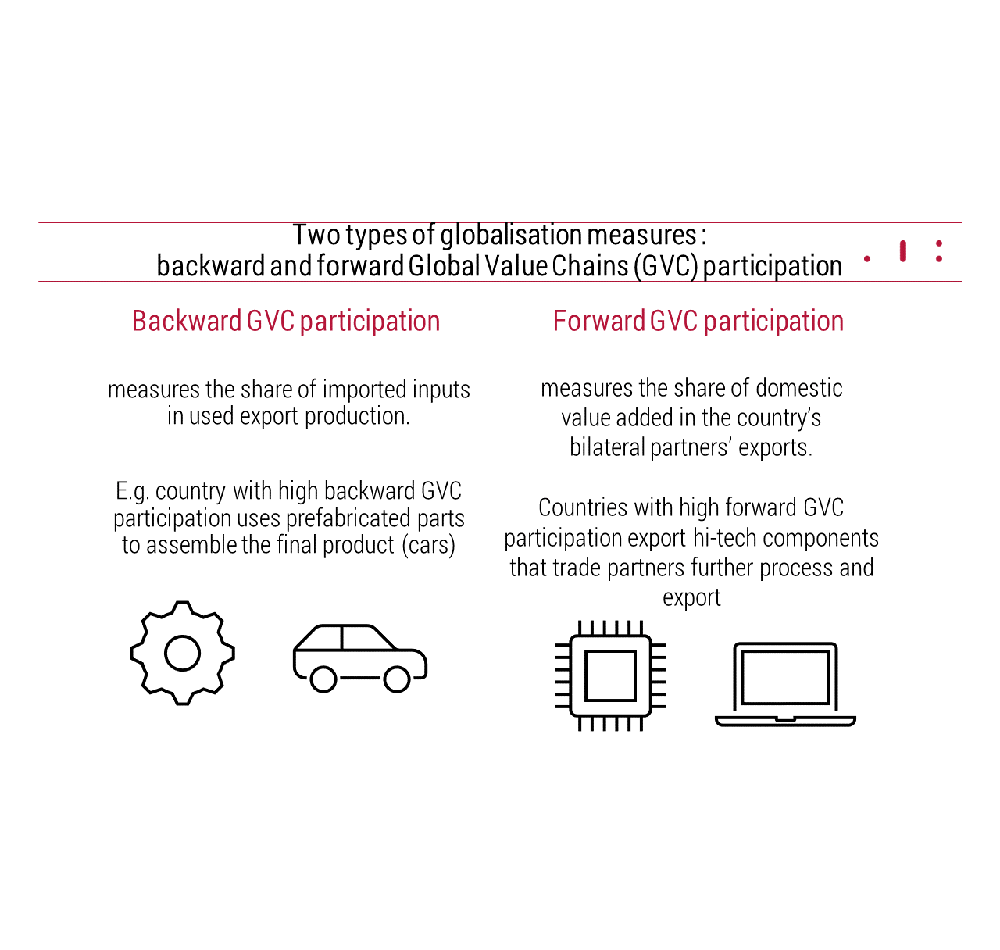This paper studies the relationship between global value chain (GVC) participation, worker-level routine task intensity, and wage inequality within countries. Using unique survey data from 38 countries, we find that higher GVC participation is associated with more routine-intensive work, especially among workers in offshorable occupations. This effect is particularly strong in industry and in countries at lower development levels. As higher routine task intensity links with to wages, this indirectly widens within-country wage inequality. However, GVC participation directly contributes to reduced wage inequality, except in the richest countries. Overall, GVC participation is negatively associated with wage inequality in most low- and middle-income countries that receive offshored jobs, and positively in high-income countries that offshore jobs.

We thank Daniel Lederman, Maryla Maliszewska, Dino Merotto, Marta Palczyńska, Bob Rijkers, Ben Shepherd, Jorge Tudela-Pye and the participants of the World Bank and Untangled workshops for their useful comments. This paper was financially supported by the World Bank. The work was carried out under the overall supervision of Sébastien Dessus and Antonio Nucifora. The findings, interpretations, and conclusions expressed in this paper are entirely those of the authors. They do not necessarily represent the views of the World Bank Group and its affiliated organisations, its Executive Directors or the governments they represent. Karol Madoń’s contribution was financed by the National Science Centre, project no. 2021/41/N/HS4/03640, agreement no. UMO-2021/41/N/HS4/03640. All errors are ours.

